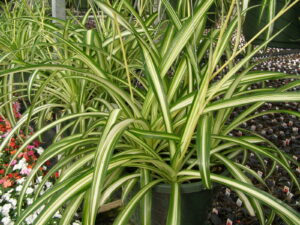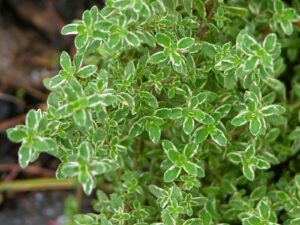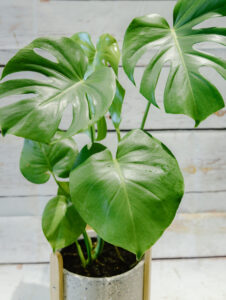Artemisia, also known as wormwood, is a versatile plant that has been used for centuries in traditional medicine and culinary practices. This herbaceous perennial plant belongs to the Asteraceae family and is native to the temperate regions of Europe, Asia, and North America. With its unique properties and extensive health benefits, artemisia has gained significant attention in recent years. In this article, we will explore the various uses and benefits of the artemisia plant, from its historical significance to its potential in modern medicine.
The Historical Significance of Artemisia
Artemisia has a long and rich history dating back thousands of years. It was prominently featured in ancient Greek and Roman texts, where it was used for medicinal purposes. The Greek physician Hippocrates, often referred to as the “father of medicine,” recognized the therapeutic properties of artemisia and prescribed it for a range of ailments.
Moreover, artemisia has played a significant role in traditional Chinese medicine (TCM) for over 2,000 years. In TCM, it is known as “Qing Hao” and is used to treat various conditions such as fever, malaria, inflammation, and digestive disorders. The plant’s bitter and aromatic properties make it a popular choice in TCM formulations.
The Medicinal Properties of Artemisia
Artemisia is packed with bioactive compounds that contribute to its medicinal properties. One of the key compounds found in artemisia is artemisinin, which has potent anti-malarial properties. Artemisinin is effective against drug-resistant strains of malaria, making it a crucial component in the fight against this deadly disease.
In addition to its anti-malarial properties, artemisia also exhibits anti-inflammatory, antioxidant, and antimicrobial effects. These properties make it a promising candidate for the treatment of various conditions, including cancer, inflammatory diseases, and microbial infections.
1. Anti-Cancer Potential
Studies have shown that artemisia and its derivatives possess anti-cancer activities. Artemisinin, in particular, has been found to inhibit the growth of cancer cells and induce apoptosis, or programmed cell death, in various types of cancer, including breast, lung, and colon cancer.
Furthermore, artemisinin has shown potential in enhancing the efficacy of conventional cancer treatments. When combined with chemotherapy drugs, artemisinin can enhance their anti-cancer effects and reduce drug resistance.
2. Anti-Inflammatory Effects
Inflammation is a natural response of the immune system to protect the body from injury and infection. However, chronic inflammation can lead to various diseases, including cardiovascular disease, diabetes, and autoimmune disorders.
Artemisia has been found to possess anti-inflammatory properties, which can help reduce inflammation and alleviate symptoms associated with inflammatory conditions. Studies have shown that artemisia extracts inhibit the production of pro-inflammatory cytokines, reducing inflammation and improving overall health.
3. Antimicrobial Activity
The antimicrobial properties of artemisia have been recognized for centuries. The plant’s essential oils contain compounds that exhibit antimicrobial activity against bacteria, fungi, and parasites.
Artemisia has been used traditionally to treat parasitic infections, such as intestinal worms and malaria. Its effectiveness against these pathogens has been confirmed by scientific studies. Artemisinin, the key compound in artemisia, is particularly effective against the malaria parasite, Plasmodium.
Modern Applications of Artemisia
As scientific research continues to uncover the potential health benefits of artemisia, its applications in modern medicine and other industries have expanded. Let’s explore some of the modern applications of this remarkable plant:
1. Anti-Malarial Medications
Artemisinin-based combination therapies (ACTs) have become the standard treatment for malaria worldwide. These therapies combine artemisinin or its derivatives with other anti-malarial drugs to enhance their effectiveness and reduce the risk of drug resistance.
The World Health Organization (WHO) recommends ACTs as the first-line treatment for uncomplicated malaria. Artemisinin and its derivatives provide rapid relief from the symptoms of malaria and help prevent the spread of the disease.
2. Herbal Supplements
Artemisia supplements have gained popularity as herbal remedies for various health conditions. They are available in various forms, including capsules, tinctures, and teas.
These supplements are often used to support immune function, alleviate digestive issues, and promote overall well-being. However, it is important to consult with a healthcare professional before starting any herbal supplementation regimen.
3. Culinary Uses
Artemisia is not only valued for its medicinal properties but also for its culinary uses. In some cultures, artemisia leaves are used as a flavoring agent in cooking and brewing.
Artemisia absinthium, also known as absinthe wormwood, is used to make the famous alcoholic drink absinthe. Although absinthe has a controversial history, it remains popular among certain enthusiasts.
Artemisia as a Sustainable Crop
Besides its medicinal and culinary uses, artemisia also holds promise as a sustainable crop. The plant is highly adaptable and can thrive in various climates and soil conditions. Its ability to grow in marginal lands makes it an attractive option for farmers in arid or degraded regions.
Furthermore, artemisia is known for its resistance to pests and diseases, reducing the need for chemical pesticides. This makes it an environmentally friendly crop that can contribute to sustainable agriculture practices.
Conclusion
Artemisia, with its long history of medicinal use and versatile properties, continues to captivate researchers and healthcare professionals worldwide. From its anti-malarial effects to its potential in cancer treatment and inflammation reduction, this powerful herb holds great promise for improving human health.
As more studies are conducted, we can expect to uncover even more benefits and applications of artemisia. Whether it’s in the form of anti-malarial medications, herbal supplements, or culinary delights, artemisia is a plant that deserves our attention and appreciation for its valuable contributions to our well-being.
FAQs (Frequently Asked Questions) About Artemisia
1. Is artemisia safe to consume?
Artemisia is generally safe when consumed in moderate amounts. However, it is important to consult with a healthcare professional before using artemisia as a supplement or in medicinal preparations, especially if you are pregnant, breastfeeding, or have any underlying health conditions.
2. Can artemisia be used to treat malaria?
Yes, artemisia and its derivatives, particularly artemisinin, are effective in treating malaria. Artemisinin-based combination therapies (ACTs) are recommended by the World Health Organization (WHO) as the first-line treatment for malaria.
3. Are there any side effects of artemisia?
While artemisia is generally safe, some individuals may experience allergic reactions or digestive discomfort when consuming it. Additionally, long-term use of artemisinin as a monotherapy may lead to drug resistance. It is essential to follow proper dosage guidelines and consult with a healthcare professional.
4. Can artemisia be used in cooking?
Yes, artemisia leaves are used as a flavoring agent in certain cuisines. Artemisia absinthium, also known as absinthe wormwood, is used to make the alcoholic drink absinthe.
5. How can artemisia contribute to sustainable agriculture?
Artemisia is a highly adaptable plant that can grow in marginal lands and withstand various environmental conditions. Its resistance to pests and diseases reduces the need for chemical pesticides, making it an environmentally friendly crop that can contribute to sustainable agriculture practices.
Summary
Artemisia, also known as wormwood, is a versatile plant with a long history of medicinal use. It possesses numerous health benefits, including anti-malarial, anti-inflammatory, and antimicrobial properties. Artemisia has shown promise in treating various conditions, such as cancer and inflammatory diseases. It is used in the production of anti-malarial medications and herbal supplements. Additionally, artemisia has culinary uses and can be cultivated as a sustainable crop. As research continues, artemisia’s potential in modern medicine and other industries will likely expand, making it an herb to watch for its valuable contributions to human health and well-being.



